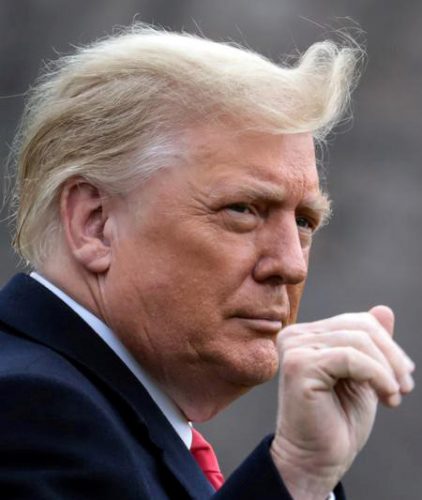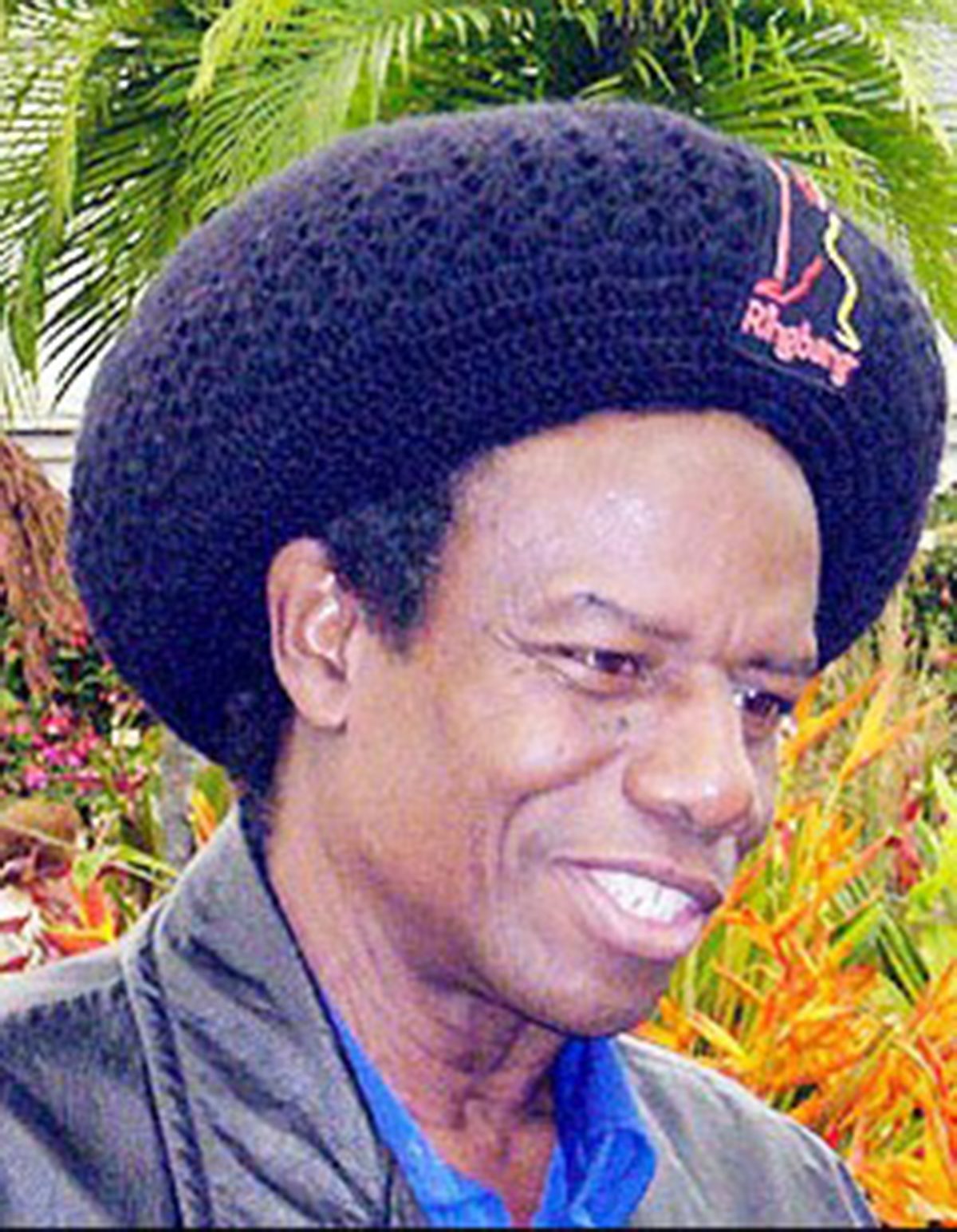Guyanese international musician Eddy Grant has come out victorious in the first stage of a lawsuit he has initiated against former US President Donald Trump over the unauthorised use of his popular song ‘Electric Avenue.’
United States District Judge John G. Koeltl on Tuesday denied the former’s president’s application to have the case dismissed.
Grant through his lawyers launched the copyright infringement action over Trump’s unauthorised use of his music in an animated video. While the video, which contained some 40 seconds of Grant’s 1983 hit song, was created by a third party during the 2020 presidential election campaign, it was posted by Trump on his personal Twitter account. The video, which was tweeted by Trump on August 12, 2020, endorsed him for presidential reelection and sought to denigrate the Democratic nominee, now President Joseph R. Biden.

Trump had moved to the court to have the action dismissed pursuant to Federal Rule of Civil Procedure 12 (b) (6) but in dismissing the motion Justice Koeltl said he considered all of the arguments raised to be “either moot or without merit”.
The popular tune by Grant had spent five weeks at number two on Bill-board Magazine’s Top 100 Chart and it was also certified platinum by the Recording Industry Association of America.
In the ruling, seen by this newspaper, the judge pointed to Trump’s attempt to argue that the video’s use of the song was transformative as a matter of law because the video and the song serve different purposes,
“But the defendants’ argument misapprehends the focus of the transformative use inquiry. While it is true that the animation is partisan political commentary and the song apparently is not, the inquiry does not focus exclusively on the character of the character of the animation, rather, it focuses on the character of the animation’s use of Grant’s song,” the judge said in the ruling.
According to the court documents, the video began with a depiction of a high-speed red train bearing the words ‘Trump Pence KAG [Keep America Great]’. After the red train passes, the beginning of ‘Electric Avenue’ can be heard clearly, along with excerpt of a speech by President Biden.
“Around the same time, a slow-moving handcar, operated by an animated likeness of President Biden, comes into view bearing the words ‘Biden President: Your Hair Smells Terrific.’ The video-in particular the contrast between the trains and the unflattering nature of the excerpted language from President Biden-appears intended to criticize President Biden and depict the strength of former President Trump’s campaign,” the court documents said.
Grant’s song can be heard beginning at around the fifteen-second mark of the video, and continues through the duration of the 55-second video.
Grant submitted that the Trump campaign provided former President Trump with the animated video or otherwise contributed to the creation, production, and distribution of the video. It was pointed out that as of September 1, 2020, the video had been viewed more than 13.7 million times; the Tweet containing the video had been “liked” more than 350,000 times, re-Tweeted more than 139,000 times, and had received nearly 50,000 comments.
Grant never authorised the use of his song and had even written to Trump and his team advising them about the unauthorised use of his song and demanded that they “cease and desist from further infringing conduct”.
Did not edit
Justice Koeltl found that the creator of the video did not edit the song’s lyrics, vocals, or instrumentals at all, and as such the song is immediately recognisable when it begins playing around the fifteen-second mark of the video, notwithstanding that audio of President Biden’s speech can be heard simultaneously.
“Moreover, the animation does not use the Electric Avenue as a vehicle to deliver its satirical message, and it makes no effort to poke fun at Grant,” the judge said.
The above is important as Justice Koeltl points out that the defendants concede that the video is clearly satire, not a parody of Electric Avenue or Grant, and they have offered no justification for their extensive borrowing. He also pointed out that the fact that the video on the whole constitutes political messaging it does not by itself support a finding of transformative use.
As to Trump’s argument that political use is by definition not commercial was also dismissed by the judge as he referred to a 1985 US case where it was ruled that “The crux of the profit/nonprofit distinction is not whether the sole motive of the use is monetary gain but whether the user stands to profit from exploitation of copyrighted material without paying the customary price.”
According to Justice Koeltl, there is some inherent tension between the promotion of valuable political satire and the copyright protections of the existing art that satirists may wish to use as source material.
However, he pointed out that copyright law “merely insist [s] that, just as artists must pay for their paint, canvas, neon, tubes, marble, film, or digital cameras, if they choose to incorporate the existing copyrighted expression of other artists in ways that draw their purpose and character from that work, they must pay for that material as well”. He said this same principle applies to the political satirists.
“The creator of the video here made a wholesale copy of a substantial portion of Grant’s music in order to make the animation more entertaining,” the judge noted.
He added that the video did not parody the music or transform it in anyway and its overarching political purpose does not automatically make the use transformative, and the other fair use factors also favour the plaintiffs at this stage.
“Accordingly, the defendants have failed to demonstrate fair use as a matter of law,” the judge ruled, adding that they can reassert their fair use defence at the summary judgment stage when there is a more developed factual record.
The matter is not expected to be heard in its entirety and a trial will be held during which Trump and Grant will argue their cases.





